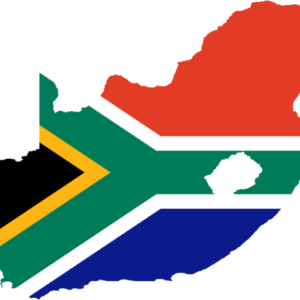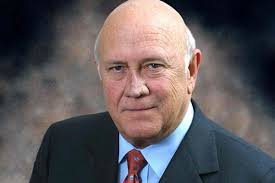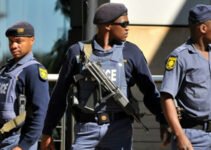As the sun paints the South African sky on March 14, the whispers of the past echo in the air. Like many threads woven into the nation’s vibrant tapestry, this date holds stories waiting to be unearthed. We embark on a journey of exploration, delving into the triumphs, tragedies, and turning points that mark March 14 in South Africa’s history.

2005: A prison warder is killed in Groote Schuur Hospital
A 31 year-old prison warder Jacques Horne on guard duty, was shot dead and another injured in an attack by gunmen at Cape Town’s Groote Schuur Hospital to free a prisoner, apparently a member of a group of cash-in-transit heist robbers that was allegedly led by Given Raymond Peete. The men sped to Woodstock in a silver grey Toyota Corolla after which they dumped the car and hijacked another family from Port Elizabeth.
2005: South Africa struggles to fight HIV/AIDS pandemic
News 24 reported that South Africa’s ambitious HIV/Aids treatment plan was lagging behind as the government struggled to plug a shortage of doctors and pharmacists and other professionals needed to fight the HIV/Aids pandemic. For two consecutive years, the government failed to hit its target of providing free antiretroviral (ARV) drugs to 53 000 South Africans by March, even though President Thabo Mbeki had described the programme as “the best in the world”.
1994: The TEC decides on Bophuthatswana’s incorporation following major unrest
In 1994, due to a widespread revolt demanding the reincorporation of Bophuthatswana into South Africa, Chief Lucas Mangope was overthrown, and Dr. Tjaart van der Walt was appointed as the new administrator. South African troops were sent in after violent clashes that resulted in around 50 deaths.
1984: Koeberg becomes operational
The nuclear power station at Koeberg, the only commercial nuclear power station in Africa, became operational on this date. On 21 August 1984, the French contractor turned Koeberg-1 over to South Africa’s Electricity Supply Commission (Eskom) and the plant was issued its commercial operating license. Koeberg is situated at Duynefontein, 27km north of Cape Town on the Atlantic coast. The power station provides electricity to the Western Cape and supplies 6,5% of South Africa’s total electricity needs. It has operated safely for more than seventeen years and is expected to operate for another twenty to thirty years.
1982: A bomb blast rocks the ANC London office
On this day the African National Congress (ANC) headquarters in London, England, was bombed. General Johann Coetzee, former head of the South African security police, and seven other policemen, claimed responsibility for the attack and applied for amnesty before the Truth and Reconciliation Commission. Coetzee’s accomplices were Craig Williamson, John McPherson, Roger Raven, Wybrand du Toit, John Adam, James Taylor and Eugene de Kock. Coetzee testified that the South African government wanted to demoralise the ANC and display South Africa’s disapproval of the British government and their support of the liberation organisation. According to Coetzee, he acted on orders of former minister of law and order, Louis le Grange, and had assumed that the assignment had the full support of the government. Coetzee denied any intention to kill ANC officials because this would have strained South Africa’s diplomatic relations with Britain. The decision to bomb the offices of the ANC in London was made as a result of a number of bombings conducted by the ANC in South Africa.
1961: The New English Bible is published
In 1935, Cambridge University Press and Oxford University Press who were the copyright holders of the English Revised Version Bible felt that a modern version of the bible was needed and investigations began. Proceedings to compile the Revised English Version only began in the 1940’s. A team of experts was organized and the process of revising the book was accomplished. The revised version was published as The New English Bible on 14 March 1961. The new English version was revised yet again in 1989 and was published as The Revised English Bible.
1898: Woolf Joel is killed due to his refusal to kidnap President Paul Kruger
On 14 March 1898, 34 year old Woolf Joel, Barney Barnato’s nephew, was shot and killed by Baron Von Veltheim because he refused to assist in kidnapping President Paul Kruger. It was alleged that Von Veltheim had visited Joel at the Brothers Barnato offices, and had suggested a plan to kill President Kruger. When Joel rejected his proposal, he was shot and killed. Von Veltheim was later arrested and jailed for this crime.
1878: Dr Alexander Logie du Toit, South African geologist, is born in Cape Town
Dr Alexander Logie du Toit was a South African geologist who became the country’s most important geologist. He studied both mining engineering and geology. Du Toit was an early supporter of Alfred Wegener’s theory of continental drift and proposed the theory of two super continents separated by one ocean, which collided and formed Pangea. He documented all this in his book, Our Wandering Continents; An Hypotheses of Continental Drifting. Dr Alexander Logie du Toit died in 1948.


